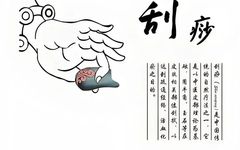Definition of Gua Sha Technique
The Gua Sha technique is guided by the theory of meridians and acupoints in Traditional Chinese Medicine (TCM). It involves the repeated scraping of specific areas on the body using blunt-edged tools, such as those made from buffalo horn or Bian stone, to create petechiae. This process helps to open the pores, expel pathogens, clear meridians, harmonize the functions of the organs, and achieve disease prevention and treatment through this external TCM technique.
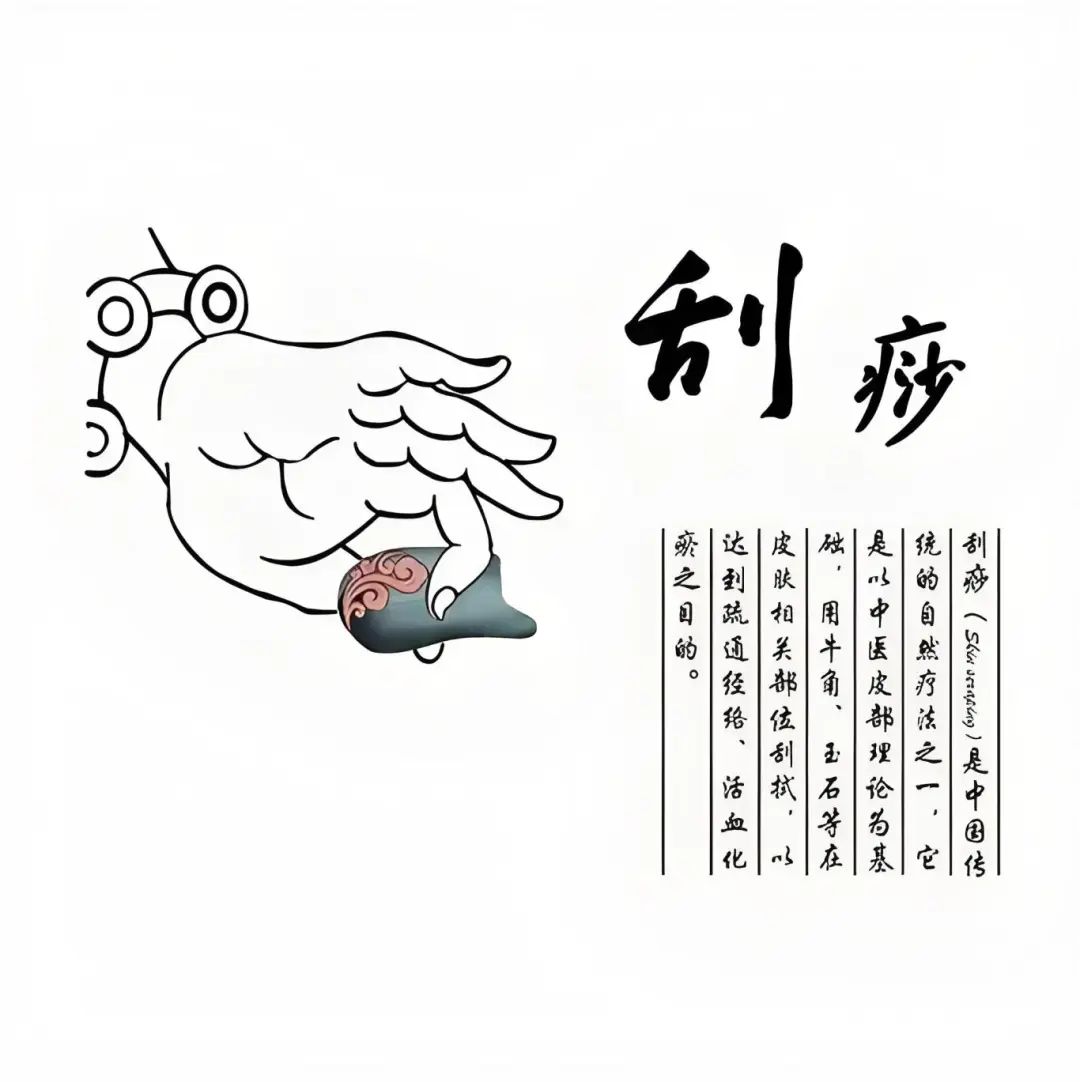
 Effects of Scalp Gua Sha1
Effects of Scalp Gua Sha1
Scalp Gua Sha can alleviate symptoms of discomfort in the brain, treating dizziness, headaches, and sleep disorders;
2
Scalp Gua Sha has the effect of invigorating blood circulation and resolving blood stasis, improving cerebral blood flow, and can assist in lowering blood pressure;
3
Scalp Gua Sha can enhance brain function and intelligence, improving memory and alleviating brain fatigue.
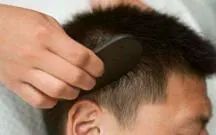
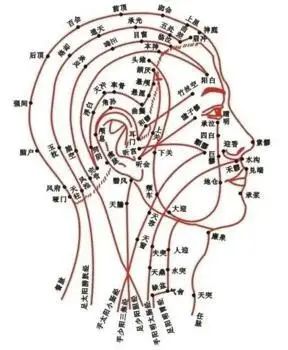 Contraindications for Scalp Gua Sha01
Contraindications for Scalp Gua Sha01
Patients with skin diseases on the scalp, unexplained lumps, or those who have undergone scalp surgery should not undergo scalp Gua Sha.
02
Patients with bleeding disorders, such as severe anemia, leukemia, aplastic anemia, and thrombocytopenia, should avoid scalp Gua Sha to prevent difficult absorption of subcutaneous bleeding that may occur during the procedure.
03
Patients with mental illnesses are prohibited from undergoing scalp Gua Sha to avoid triggering or exacerbating their condition.
Scalp Gua Sha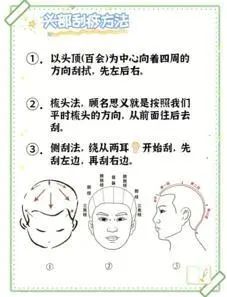
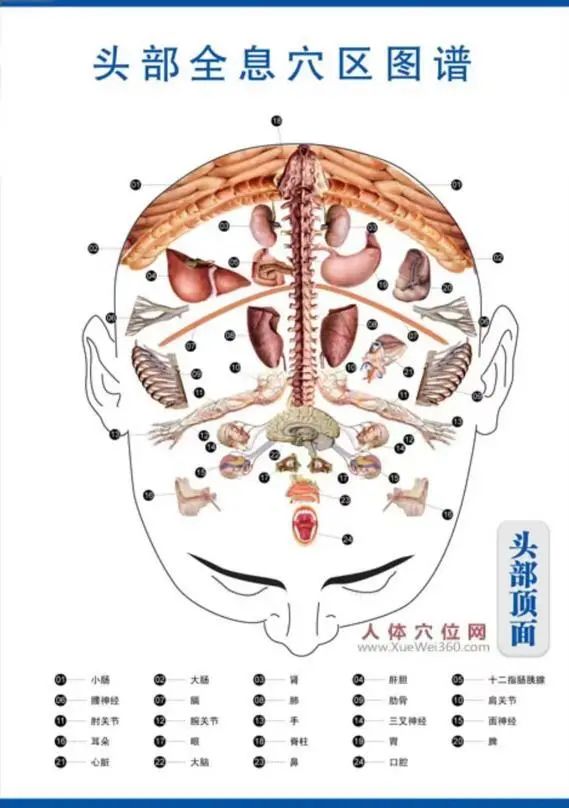 Precautions for Scalp Gua Sha
Precautions for Scalp Gua Sha
01
Post-Treatment Precautions
During Gua Sha treatment, avoid direct wind exposure to the scraped area, and do not wash your hair or body for 4 hours after treatment.
02Dietary Considerations Post-Treatment
After Gua Sha, it is advisable to avoid alcohol and spicy foods, as well as raw, cold fruits and greasy foods.
03Maintain Emotional Calm
After Gua Sha, it is important to keep emotions calm and avoid excessive emotional fluctuations, which may affect the recovery process and lead to discomfort.
Department Overview
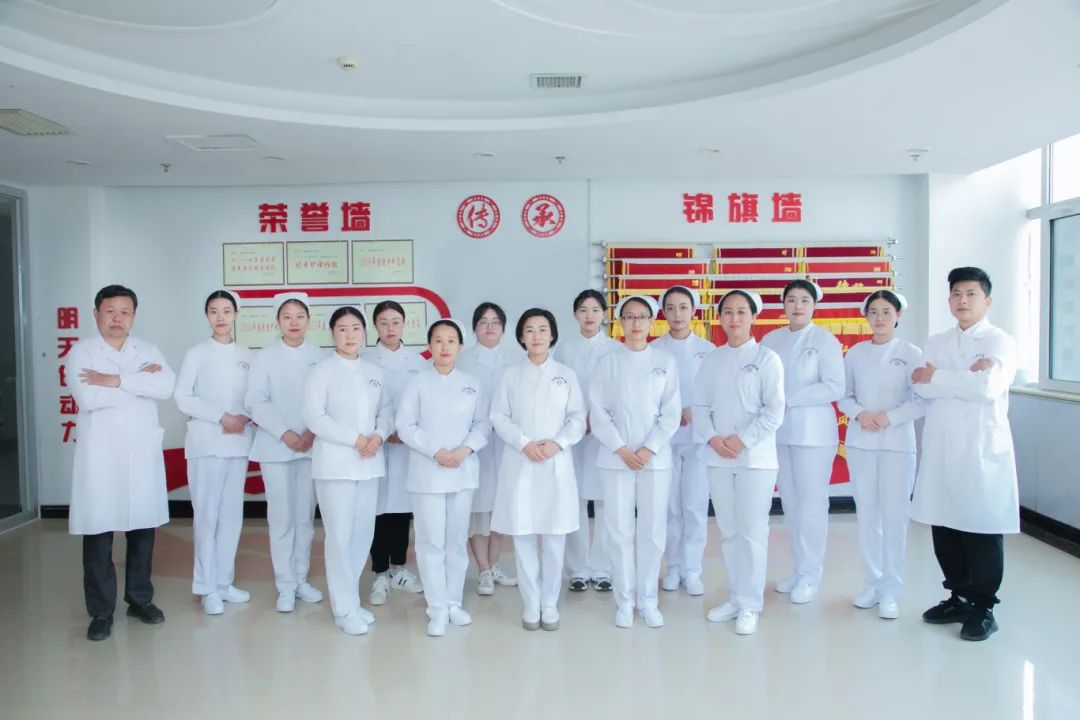
The Neurology Department was established in 2012 and was approved as a key specialty in Hebei Province in 2016. It is a collaborative unit for the prevention and treatment of cerebrovascular diseases in the city and is one of the main treatment and rehabilitation forces for neurological diseases in Daming County. The department has 50 beds and is managed according to the cutting-edge “Stroke Unit” model, implementing integrated nursing.
The department has 17 medical staff, including 1 chief physician, 1 attending physician, 4 practicing physicians, 2 psychotherapists, 2 head nurses, 3 nurses, and 4 nursing assistants. The department is equipped with advanced diagnostic and treatment equipment, including simple ventilators, defibrillators, ECG monitors, sputum suction machines, infusion pumps, injection pumps, cervical and cranial magnetic therapy devices, moxibustion devices, air limb pressure therapy devices, TCM directional drug delivery devices, gastrointestinal function treatment devices, medium-frequency pulse electrotherapy devices, and infrared therapy devices. The department specializes in the combined treatment of neurological diseases using both TCM and Western medicine, such as cerebral hemorrhage, cerebral infarction, transient ischemic attacks, migraines, vertigo, spinal cord compression syndrome, cervical dystrophy, and sleep disorders.
Friendly Reminder:
Scalp Gua Sha not only stimulates related acupoints on the head and clears the meridians but also has a regulatory function on the internal organs, effectively improving symptoms such as dizziness, headaches, and insomnia. If you experience any of these symptoms, let’s start scraping together!
Phone: 0310-6502599
Director Ye: 15132025899
Address: 5th Floor, Zhongjing Building, Daming County Traditional Chinese Medicine Hospital, Neurology Department
END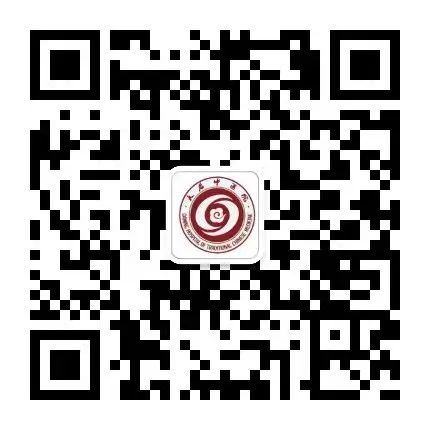 Scan to Follow Us TCM Health Preservation, Follow Our Health
Scan to Follow Us TCM Health Preservation, Follow Our Health
Submitted by: Neurology Department
Editor: Bian Yingli
Initial Review: Zhang Guojing, Zhang Zhihao
Final Review: Ye Jian

